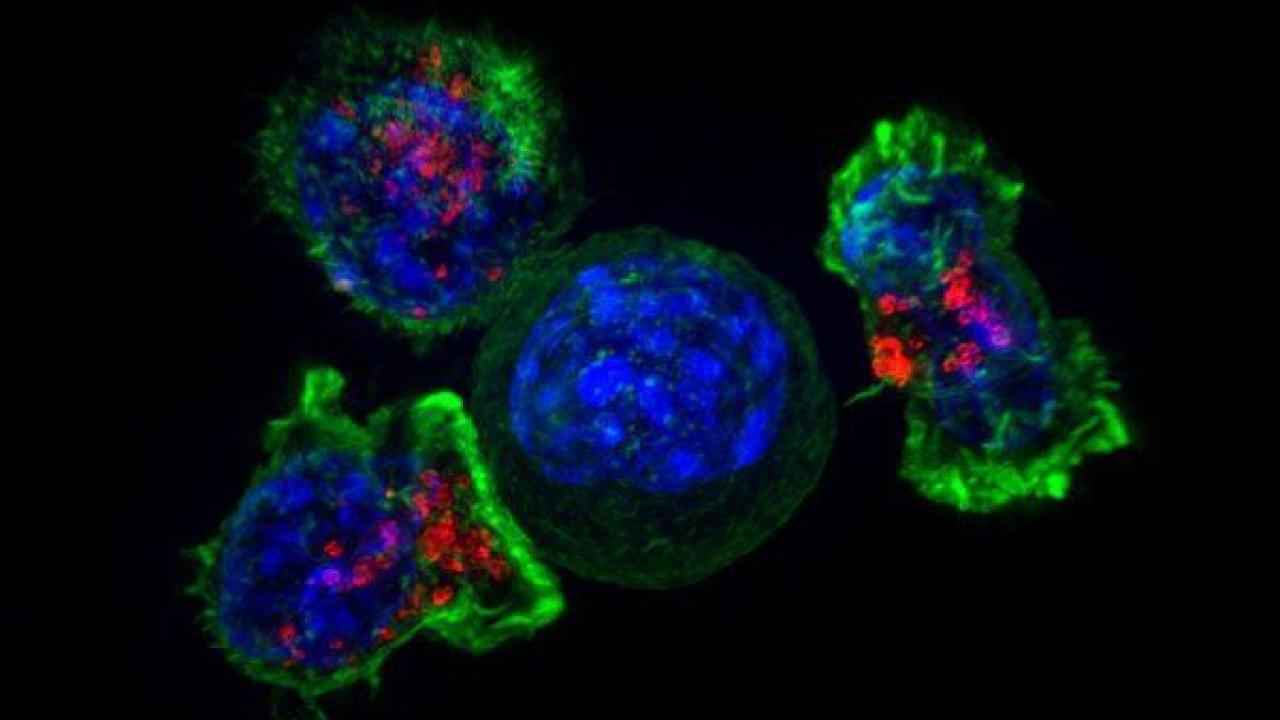
Microscopic image of a group of killer T cells (green and red) surrounding a cancer cell (blue, center). Image by Alex Ritter, Jennifer Lippincott Schwartz and Gillian Griffiths, National Institutes of Health
T cells used in immunotherapy treatments can get exhausted by the task of fighting cancer cells or get shutdown as they enter tumors. Using a CRISPR-based edit on these cells’ genomes, researchers at UC San Francisco and Gladstone Institutes have rendered the therapeutic cells more resilient. The discovery may help overcome a major factor limiting the success of these promising therapies in curbing both solid and liquid tumors.
“We’ve succeeded in engineering better, stronger, longer-lived T cells that we think will improve treatment of both blood and solid cancers,” said Alex Marson, MD, PhD, who, along with cancer biologist Alan Ashworth, PhD, FRS led the study, published in Nature on Aug. 24, 2022. “It’s an example of how we’re using the power of CRISPR to accelerate the design of improved T-cell therapies.”
Marson also heads up the Gladstone-UCSF Institute of Genomic Immunology, a joint effort of the two institutions to bring a combination of advanced genomic technologies to bear on the creation of new cell-based immunotherapies.
“These genomic innovations are creating avenues to tackle the challenges of developing highly effective and precisely targeted immunotherapies,” said Ashworth, president of the UCSF Helen Diller Family Comprehensive Cancer Center. “The capacity to direct cell behavior by manipulating the genome will likely lead to transformational changes in the treatment of many diseases.”
One of the major challenges of developing highly effective cancer immunotherapies is the fact that tumors exist in an environment that suppresses T cells and other immune cells, allowing the tumor to form and grow. Therapeutic T cells, engineered from a patient’s own T cells to recognize and kill tumor cells, often get exhausted or dysfunction as they battle this environment, becoming unable to take down the cancer cells.
“By knocking out one individual gene, we’ve created cells that are not just potent tumor cell killers but also more persistent killers over a long period of time,” said physician-scientist Julia Carnevale, MD, a corresponding author on the study, who has recently started her own lab in UCSF’s Department of Medicine, pursuing new strategies to engineer superior cell therapies for cancer treatment.
